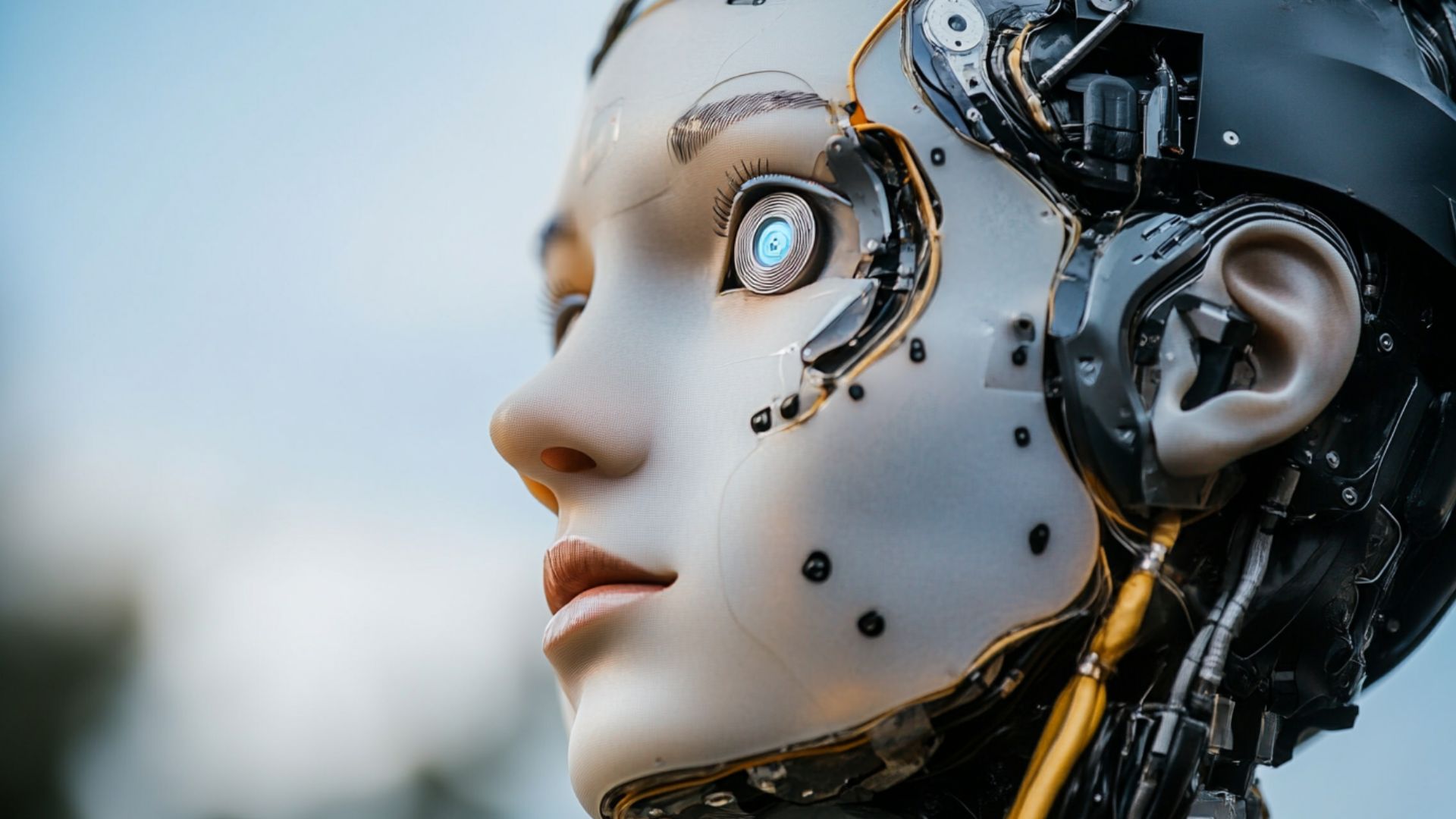Relaxation Meets Innovation: How AI is Elevating the Spa Experience

The beauty and wellness industry has undergone a remarkable transformation in recent years. This is happening through the integration of AI spa technologies. Artificial intelligence (AI) revolutionizes traditional services and offers innovative solutions that enhance client experiences and operational efficiency. These range from personalized treatments to streamlined operations.
The newest technologies enhance the overall experience. The introduction of AI spa technologies has broadly impacted the wellness sector. These advancements optimize client satisfaction by delivering tailored services. They streamline business operations through automated scheduling, inventory, and client relationship management. AI-driven insights into customer preferences further empower spas. They offer proactive, personalized care. It sets new standards for excellence in the industry. Let's examine these innovations in detail.
Personalized Wellness Journeys Through AI
AI technologies analyze client preferences and health data. They create personalized treatment recommendations in spas. This involves:
- Data Integration: Gathering and integrating client health data, preferences, and past treatment histories.
- Pattern Recognition: Using machine learning algorithms. They identify patterns and correlations in client data.
- Personalized Programs: Generating customized treatment plans. They align with individual wellness goals and preferences.
- Dynamic Adjustments: Continuously adapting recommendations based on real-time data and client feedback.
- Predictive Insights: Providing predictive insights into potential health improvements. They are typically based on treatment outcomes.
AI spa innovations are transforming overall experiences. They offer:
- Facial Recognition: Analyzing skin conditions and concerns through advanced facial recognition technology.
- Skin Assessment: Providing detailed skin health assessments. These include hydration levels, elasticity, and texture.
- Product Recommendations: Suggest personalized skincare products and routines. They are generally tailored to specific skin types and conditions.
- Progress Tracking: Monitoring changes in skin health over time. They adjust skincare regimens for optimal results.
- Virtual Consultations: Offering online guidance where AI analyzes client selfies or videos. They help to provide instant skin analyses and recommendations.
Spas should leverage these advancements in spa management software and AI technologies. So they can deliver unparalleled personalized wellness journeys.
Enhancing Spa Ambiance with AI
AI is revolutionizing settings through the latest tools. They optimize ambiance for enhanced client relaxation. Here are some popular technologies:
- Automated Adjustments: AI-driven systems regulate lighting levels, soundscapes, and room temperature. This is generally based on client preferences and real-time feedback.
- Personalized Experiences: Customizable profiles allow clients to set preferences for ambient conditions. They create a tailored spa environment.
- Energy Efficiency: Smart sensors and algorithms optimize energy usage without compromising client comfort.
- Real-Time Monitoring: Continuous checking ensures consistent ambiance throughout the spa. It adapts to changing conditions.
Spa client management software enhances aromatherapy experiences. It customizes scents. They align with the client's mood and health indicators:
- Scent Analysis: AI analyzes client data and preferences to select scents. They promote relaxation, stress relief, or rejuvenation.
- Personalized Blends: Creates bespoke scent combinations tailored to individual preferences and therapeutic needs.
- Automatic Dispensing: Integrates with spa management software. It automates scent delivery in treatment rooms.
- Feedback Integration: Collects client feedback to refine scent selections. Improve personalization over time.
Spas should integrate management software with advanced AI technologies. They will optimize client experiences, fostering relaxation through personalized ambiance and aromatherapy.
AI and Spa Safety: Ensuring Healthier Environments
The latest innovations maintain cleanliness and hygiene standards in spas. This is essential in post-pandemic scenarios. The latest technologies include:
- Automated Monitoring: Using sensors and AI algorithms. They help to check cleanliness levels in spa facilities. Automated monitoring includes sanitation of surfaces and air quality.
- Real-Time Alerts: Notifying staff of deviations from health standards prompts immediate action.
- Predictive Maintenance: Anticipating equipment care needs to prevent disruptions in hygiene protocols.
- Compliance Monitoring: Ensuring adherence to health regulations and guidelines. They are through automated checks and reports.
AI technologies predict and react to potential health risks. They are usually derived from client histories. AI technologies enhancing safety and comfort:
- Health Data Analysis: Analyzing client health records and allergy information. It anticipates potential reactions.
- Real-Time Alerts: Notifying staff of specific client allergies or health conditions. This is upon check-in for personalized service adjustments.
- Emergency Response Integration: Integrating AI systems with urgent protocols. They swiftly respond to health incidents.
- Continuous Monitoring: Checking client well-being throughout their spa visit. It helps to ensure a safe and enjoyable experience.
Spas should utilize client management software to uphold rigorous health and safety standards. They provide clients with peace of mind and a healthier environment.
Streamlining Spa Operations with AI

AI technologies are revolutionizing operations, particularly in beauty spa settings. Here’s how AI enhances efficiency across various aspects:
- Efficient Booking and Scheduling Systems: AI-powered systems analyze historical data. It predicts peak booking times. This enables spas to optimize schedules and reduce wait times. Intelligent algorithms also facilitate personalized appointment scheduling. This is generally based on customer preferences and staff availability.
- Inventory Management Powered by AI: This spa technology controls this aspect. It analyzes sales patterns and seasonal trends. This enables spas to maintain optimal stock levels and minimize waste. Also, AI helps them to predict future supply needs accurately.
- Customer Relationship Management (CRM): AI-driven systems help spas personalize client experiences. They analyze client preferences and behavior in spas. This enhances visitors' satisfaction and loyalty through targeted marketing and tailored service offerings.
- Operational Analytics: AI tools provide real-time insights into spa operations. They are staff performance metrics and service efficiency. This data-driven approach enables managers to make data-driven decisions for continuous improvement.
- Enhanced Client Interactions: AI chatbots can handle and book their inquiries 24/7. It improves customer service and frees up staff for more personalized client interactions.
Implementing spa software programs in these areas streamlines operations. Also, they enhance overall customer satisfaction. Such programs deliver more efficient and personalized services.
AI-Powered Tools for Spa Staff Training and Support
AI-driven tools are transforming staff training and decision-making processes. Here is how:
- Training through Virtual Reality and AI: This is the best spa software. It allows estheticians to practice techniques. They can do this in a realistic virtual environment. This immersive training enhances their skills in client interaction and service delivery. It provides a safe space to learn and improve without real-world consequences.
- Decision Support Systems: AI analyzes real-time data from client profiles and preferences. It helps to assist therapists in making informed treatment decisions. This includes suggesting personalized treatments and product recommendations. Individual client needs and trends often determine them.
- Performance Monitoring and Feedback: AI-powered analytics track therapists metrics. They are client satisfaction scores and treatment outcomes. This feedback loop helps identify areas for improvement. AI supports ongoing professional development.
- Adaptive Learning Platforms: They customize training modules and resources. They are generally based on each therapist’s skill level and learning pace. This personalized approach ensures continuous learning and mastery of new techniques.
- Automated Documentation and Reporting: AI streamlines administrative tasks. It automates documentation of client sessions, treatment plans, and outcomes. This reduces paperwork, enhances accuracy, and ensures compliance with regulatory requirements.
Implementing the best spa software in operations enhances staff training and support. Also, it improves overall service quality and client satisfaction. These technologies evolve. They promise to optimize spa management further. Such tools contribute to the industry’s growth.
The Future of Spas: Innovations on the Horizon
Upcoming AI technologies are generally poised to redefine the spa experience. These include:
- AI Beauty Spa: Integrating it into this area allows customized skincare and guidance. This is generally based on individual skin types and conditions. Facial recognition technology may enhance personalization by identifying returning clients and their preferences.
- Virtual Consultations and Augmented Reality: They enable clients to preview treatments. AI virtual consultations also let them visualize potential outcomes. They do it by using augmented reality (AR). This interactive experience enhances client decision-making and satisfaction.
- Predictive Analytics for Personalized Services: AI algorithms analyze client data. It helps to predict spa service preferences and recommend treatments. These are typically tailored to individual needs. This predictive capability enhances client satisfaction and retention.
- Smart Spa Equipment and IoT Integration: AI-powered devices monitor client feedback during treatments. They adjust temperature and lighting for optimal comfort and relaxation.
- Enhanced Customer Engagement through Chatbots: They provide real-time assistance to clients. It addresses inquiries about services, bookings, and post-treatment care. This improves operational efficiency and customer service.
Here are the challenges and considerations for AI spa techs:
- Privacy Concerns: Collecting and analyzing personal data for AI-driven services. It raises privacy issues. Spas must ensure data security and transparency in client information use.
- Human Touch vs. Automation: Balancing personalized service with AI can be challenging. Ensuring that AI enhances rather than replaces human interaction is essential. It helps maintain the holistic spa experience.
- Training and Adaptation: Staff training in AI utilization is essential to maximize its benefits. Overcoming resistance to technology and ensuring ongoing support provides successful integration.
- Regulatory Compliance: Adhering to industry standards regarding AI usage. This is mainly true in healthcare-related treatments. It ensures ethical practice and client trust.
Navigating these challenges while embracing emerging AI technologies is vital. It promises to elevate spa experiences. This will offer more personalized and innovative services in the future.


